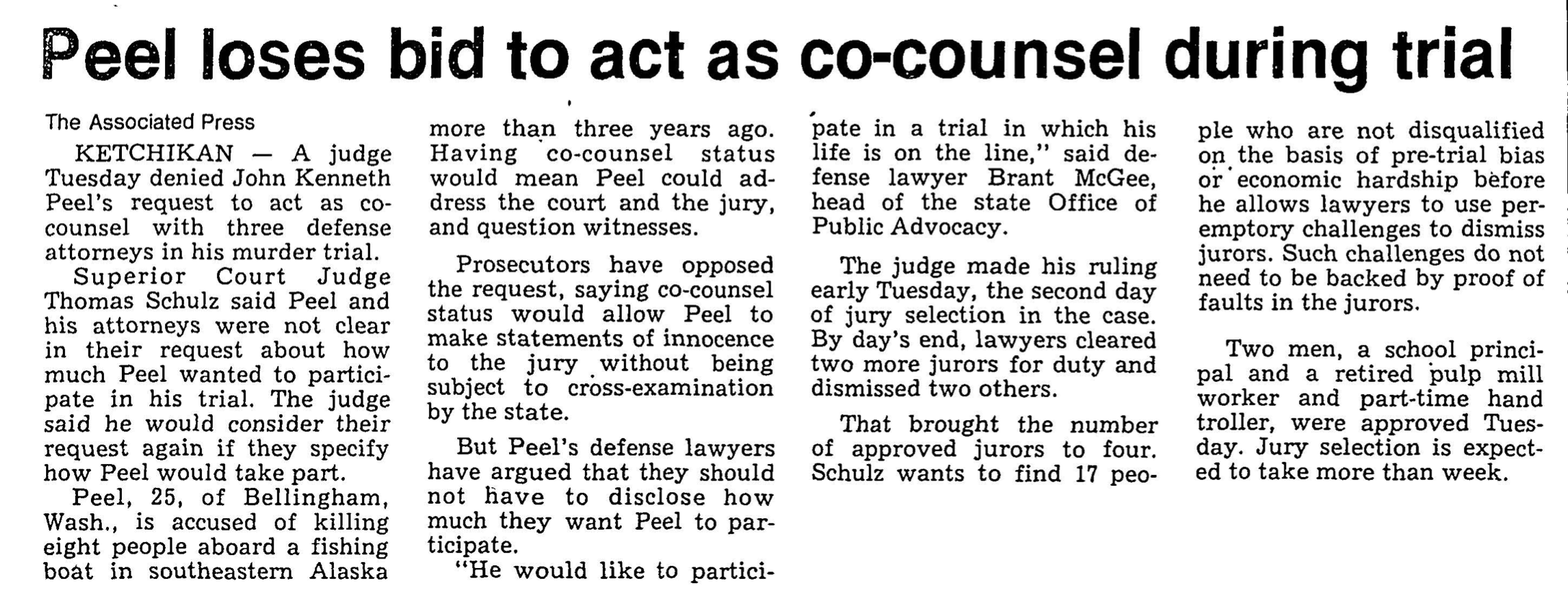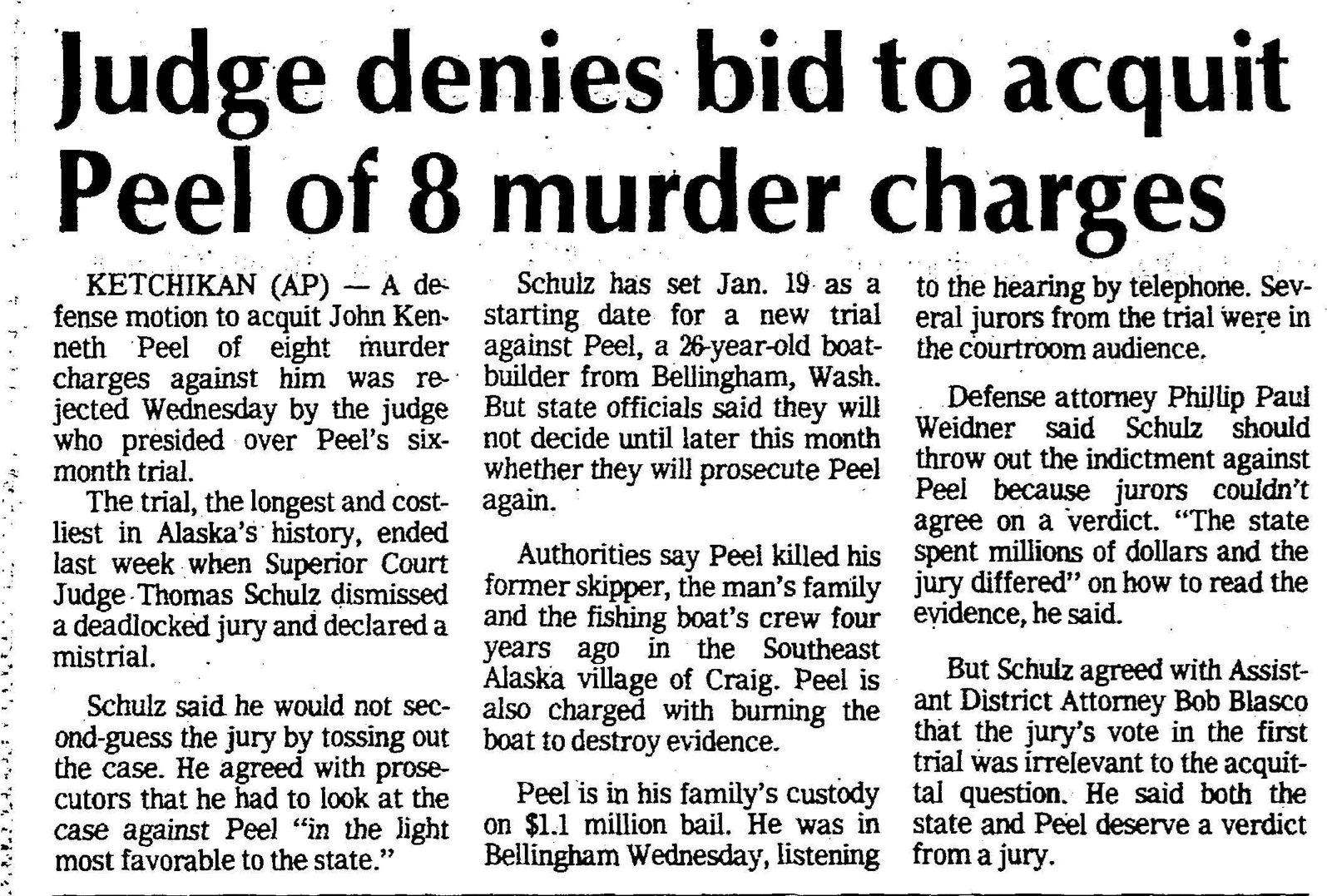There are times in criminal cases when a critical decision seems to turn things in one direction. And one direction only. These decisions rest with the judge, which is why both sides take the choice of judge so seriously. Judge Thomas Schulz was the Ketchikan judge in the Investor murder case. And twice Judge Schulz denied John Peel.

I came across the above news article while going through my files — and it struck me. Struck me because I’d recently asked John Peel about this very question. What were his feelings about his request to act as co-counsel?
His reply: “I thought it was a great idea.” Then he laughed and said “that’s why they turned it down.”
His reply doesn’t exactly track with the nuance of the decision. For Schulz, the request seemed too vague. Seemed more probative than concrete. But it’s hard to argue with McGee’s admonition that his client wanted to “participate in a trial in which his life is on the line.” Except.
A man who is his own lawyer has a fool for a client.
Of course, John Peel would not have been acting solely on his own behalf. He had two lawyers there to guide him. Or, perhaps, protect him from himself. My view is that Judge Schulz did John Peel a favor when he denied his request. Because, as Peel himself told me, “You know when you point the finger at someone, you got three fingers pointing at yourself.”

The most critical request denied by Judge Schulz was, of course, Peel’s bid for an acquittal. When the jury deadlocked, Schulz declared a mistrial. Instead of walking out of the Ketchikan courtroom a free man, Schulz decided that John Peel would face a second trial. For Schulz, it was a pyrrhic victory. The judge saw the case given over to another judge. Why? Because his law clerk was having an affair with Peel’s defense attorney. One can make of that affair what one wants. But another judge saw fit that the Schulz bid to keep the case was denied. That was another good decision.
Keeping Schulz on was a sure way to send the case to an appellate court, whatever the outcome. There is an inherent danger when a court clerk sleeps with the enemy. Did it make a difference in the final outcome? Perhaps.
There is an old saying in the Jain religion that fits this dilemma. Asked about the reality of something, the Jains have a complex answer. “Maybe is. Maybe is not. Maybe is and is not. Maybe is inexplicable. Maybe is and is inexplicable. Maybe is not and is inexplicable. Maybe is, and is not, and is inexplicable.”
Pretty much sums it up.
Thoughts prompted by the Investor murders. The original manuscript, started in 1992 and based on court records from the Alaska State Archive, served as the basis for “What Happened in Craig.”
Copyright Leland E. Hale (2021). All rights reserved.

Order “What Happened In Craig,” HERE and HERE. True crime from Epicenter Press.